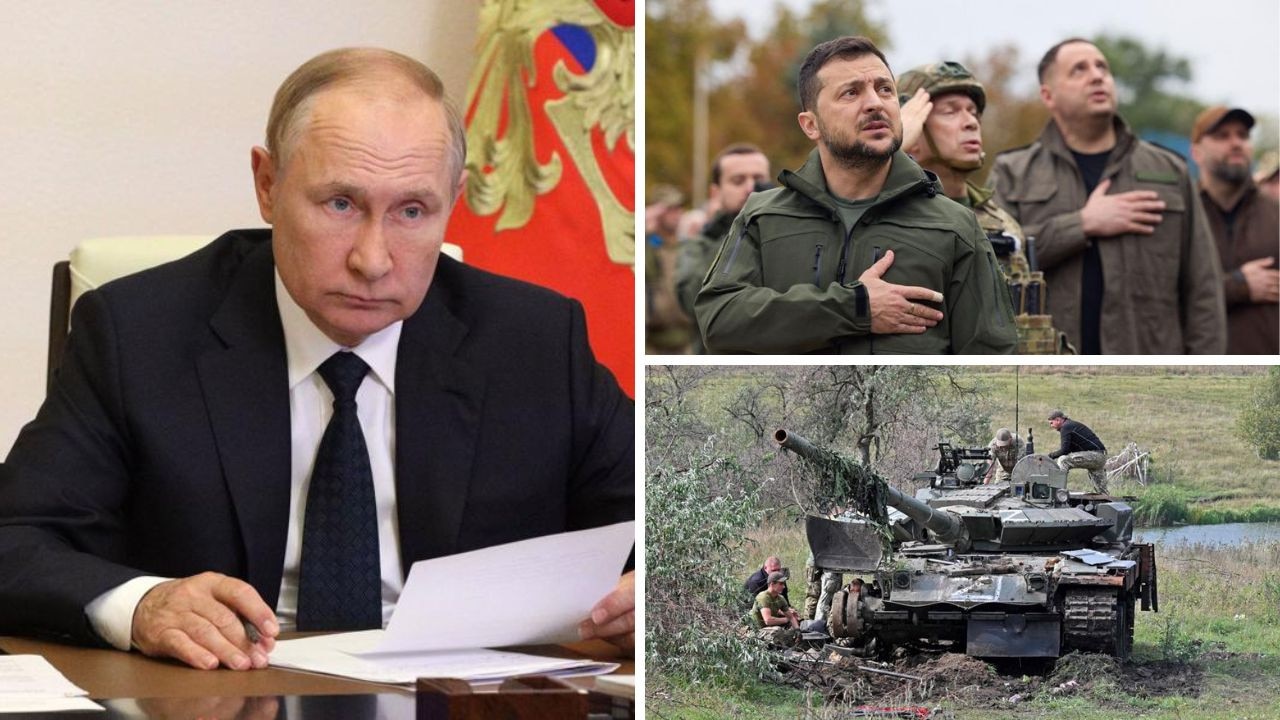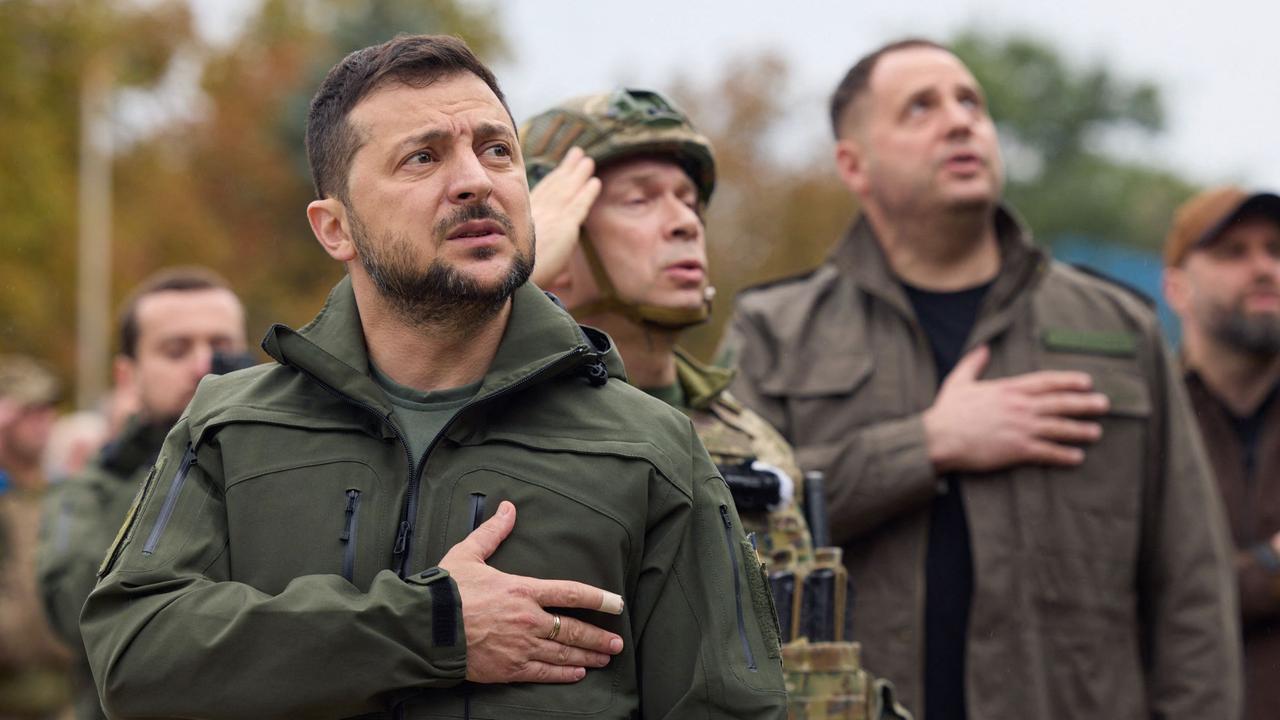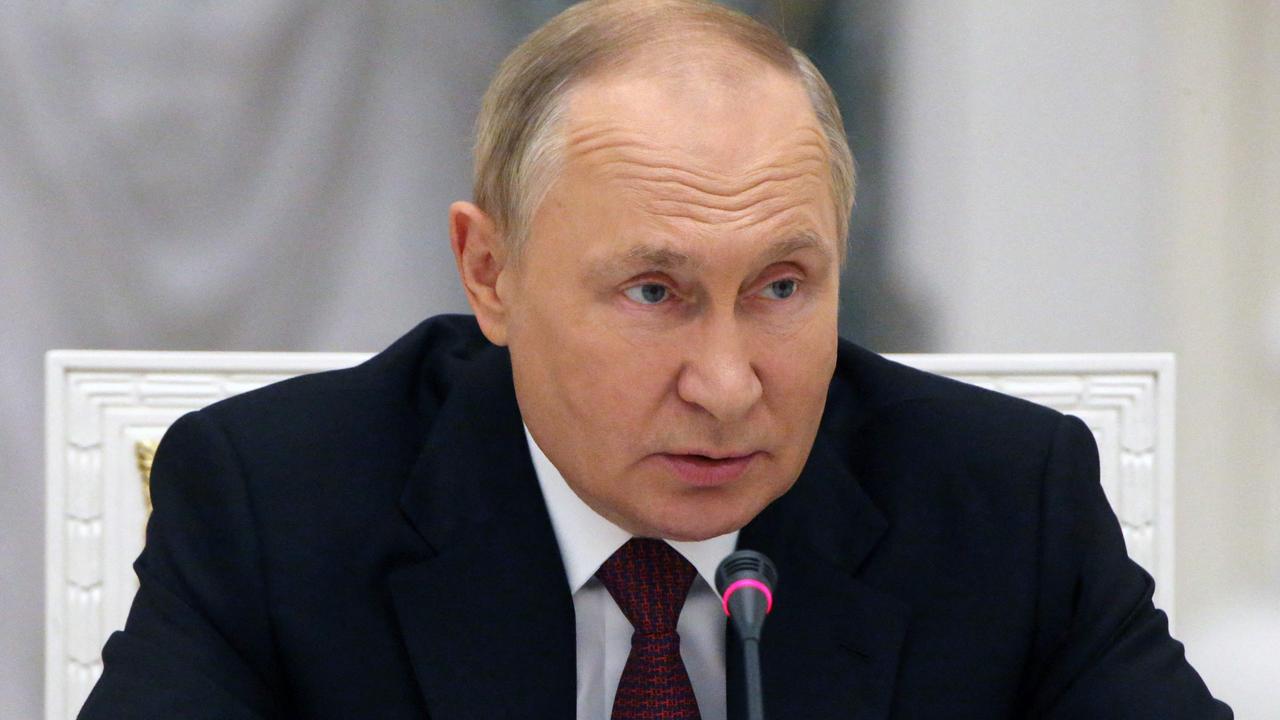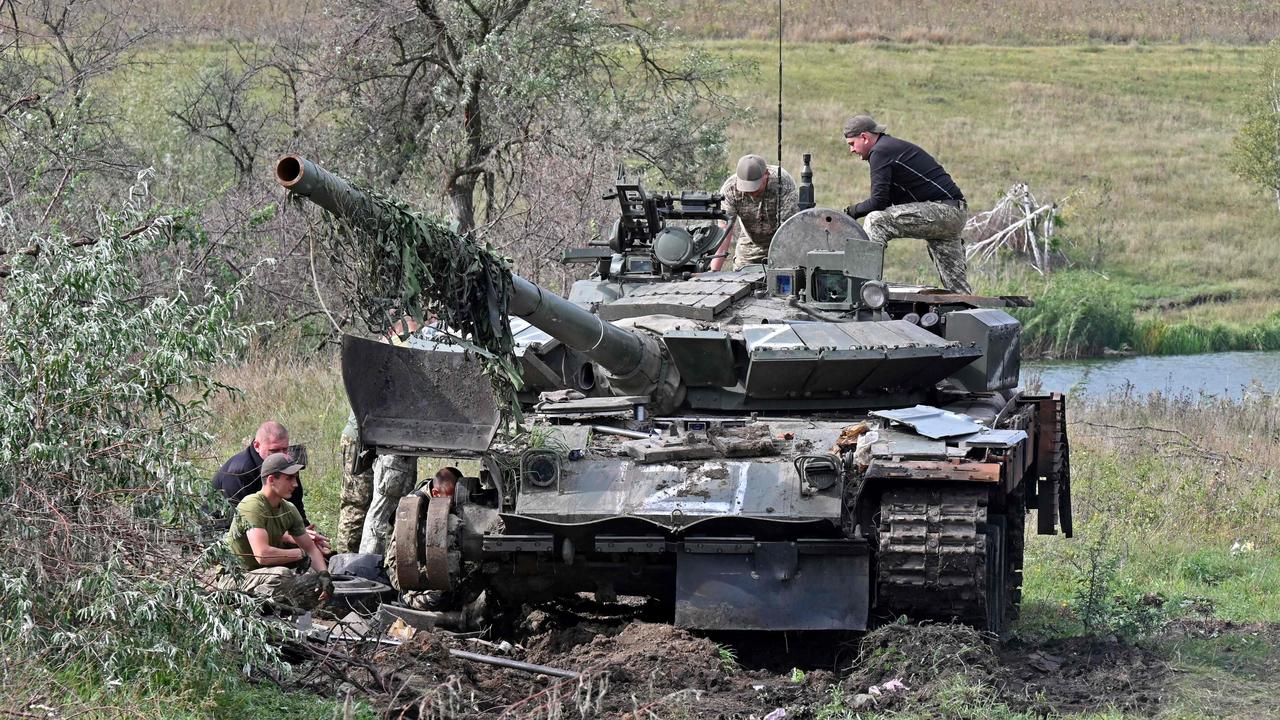‘Fear of defeat’ behind Russia’s latest ‘sham’ tactic in Ukraine
Russia is resorting to extreme “sham” tactics as fears of defeat mount in Ukraine following a massive counter-attack.

An expert has claimed that Russia is now “on the ropes” in Ukraine as the invasion faces the real possibility of “defeat”.
Ukraine has recently recaptured large tracts of land in eastern parts of the country after a stunning counteroffensive, which is believed to have caused panic in Moscow.
Around half of Ukraine’s Donetsk region, including areas just outside the main city of Donetsk, are in Ukrainian hands.
“The occupiers are clearly in a panic,” Ukrainian President Volodymyr Zelensky said.

Ukraine has won back land in Kherson, while Zaporizhzhia city and around half the region of the same name remains with Kyiv.
In total, with Crimea, Russia is thought to control 20 per cent of Ukraine’s territory.
Putin resorts to ‘sham’ tactics
Earlier this week, Russian occupying authorities in the Donbass regions of Donetsk and Luhansk as well as the southern regions of Kherson and Zaporizhzhia said referendums should be held immediately on the areas formally becoming part of Russia, with the votes potentially held within days.
The announcements have been seen as a potentially major escalation in the war in Ukraine, as it would be a significant step forward for Russia in annexing its neighbour.
If the referendums go ahead and pass as expected, then it would provide Russia with an excuse to ramp up its attacks on Ukraine, given any battles in those areas by defending forces would be claimed to be an attack against Russia itself.
But a string of experts have since claimed that the announcements are proof that Russia is growing increasingly nervous about its chances of success.
In an interview with MSNBC this week, US Deputy Secretary of State Wendy Sherman described the proposed votes as “sham referenda”, and claimed they were part of a frantic plan hatched by Russian President Vladimir Putin after his troops appeared to be “on the ropes” in Ukraine.
Russia’s growing ‘fear of defeat’
That sentiment has been echoed by Ukraine itself, which has claimed the referendums were driven by a “fear of defeat”.
Andriy Yermak, the head of the Office of the President of Ukraine, took to Telegram in response.
“Naive blackmail with threats and horror stories of ‘referendums’, ‘mobilisations’ from those who know how to fight only with children and peaceful people … This is what the fear of defeat looks like. The enemy is afraid, primitively manipulates,” he said.
“Ukraine will solve the Russian issue. The threat can be eliminated only by force.”

Ukraine’s Foreign Minister Dmytro Kuleba also agreed the referendums would be a “sham”, while presidential adviser Mykhailo Podolyak said on Twitter that: “Thinking that illegal ‘referendum’ will stop … the Armed Forces from destroying occupiers on our land.
“Do you really want to spend the time needed to escape for a new show? Try … It will be interesting …” he tweeted on Tuesday.
Mr Podolyak also told CNN that Donetsk, Luhansk, Zaporizhzhia, Kherson and Crimea were undeniably part of Ukraine’s territory and that any Russian-backed referendums would therefore be “absolutely meaningless”, adding they were a knee-jerk reaction to Mr Putin’s decreasing influence.
The referendums have been widely condemned by the West, with Canadian Prime Minister Justin Trudeau posting on Twitter that they were a “blatant violation of international law”.
“It is a further escalation of war. And it is unacceptable,” he said, adding Canada would not recognise the results.
Canada denounces Russia’s planned “referendums†in occupied regions of Ukraine. We will never recognize them. This is a blatant violation of international law. It is a further escalation of war. And it is unacceptable.
— Justin Trudeau (@JustinTrudeau) September 20, 2022
Putin’s mystery disappearance
It comes as the Russian President failed to show up for a planned speech on Tuesday night, causing mass confusion both within Russia and across the world.
At 3am on Wednesday AEST, Mr Putin was tipped to formally confirm his support of the referendums, and was also expected to announce a plan to bolster Russian troops.
But the President never appeared, causing panic among local broadcasters, who eventually simply removed references to the speech as the hours passed by.

Retired senior British army officer general Sir Richard Shirreff told Sky News that Mr Putin’s mystery disappearance “says to me there is a certain amount of chaos” within the Kremlin.
Some believe the speech has been postponed, and could take place today instead – but others are questioning why the Kremlin backtracked on what was expected to be a major announcement.
The speech would have been especially significant given it would be the first time Mr Putin addressed the nation since Russia invaded Ukraine on February 24.
– With Benedict Brook






